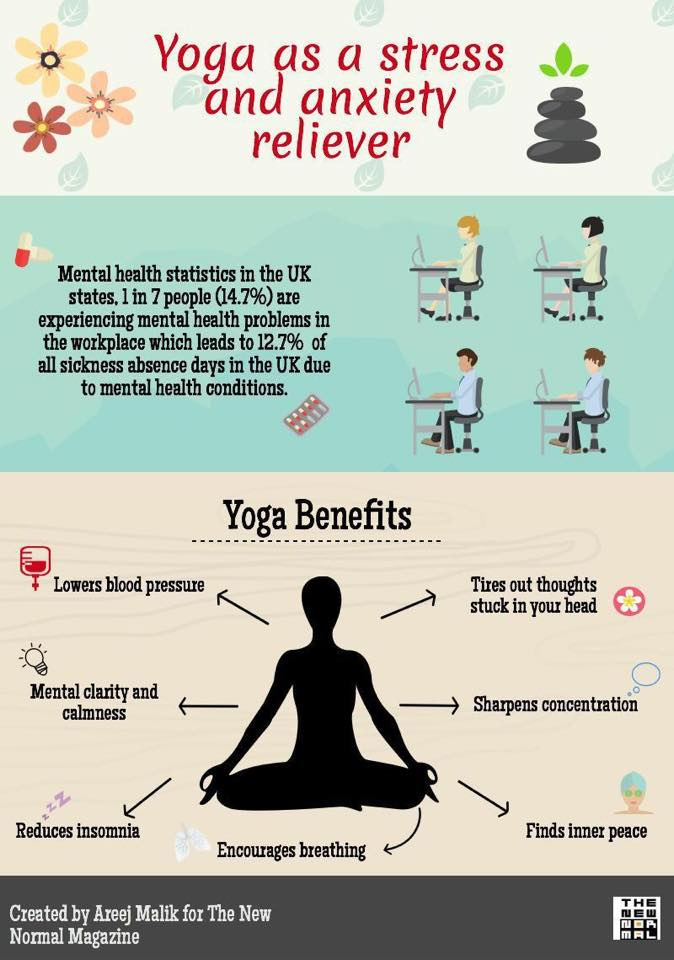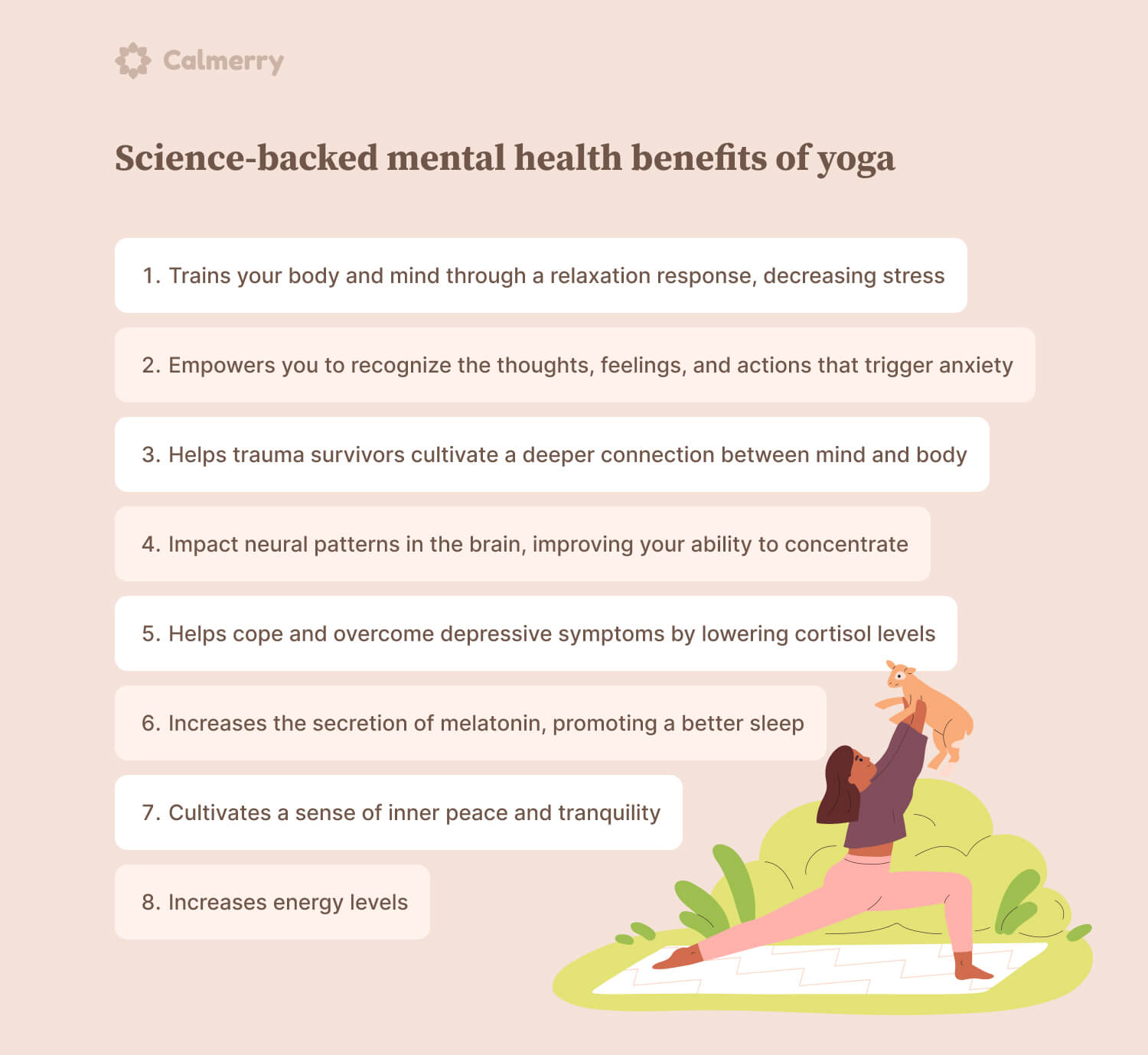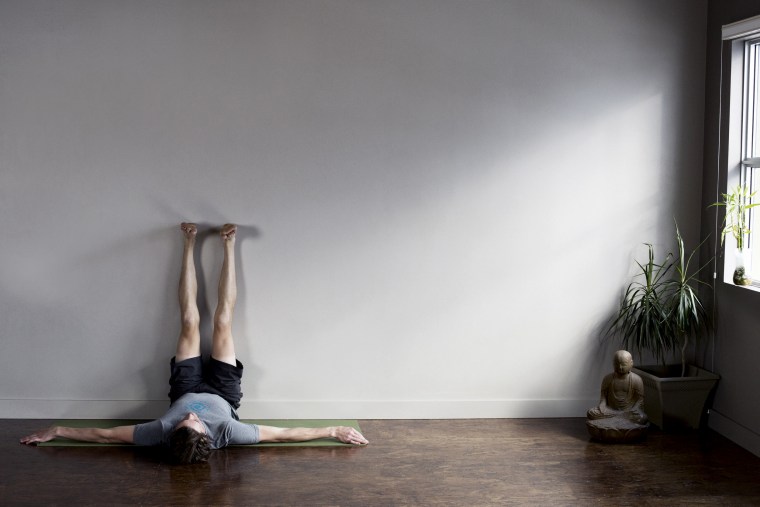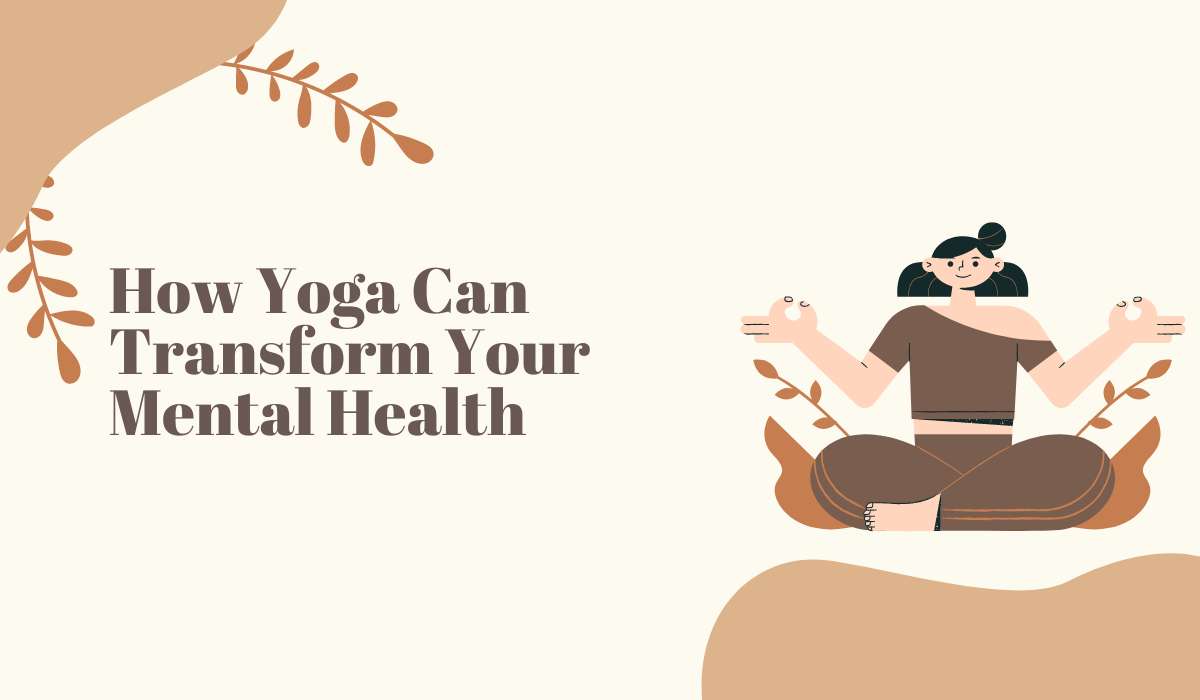How Yoga Can Transform Your Mental Health? If you’re looking to improve your mental health and find inner peace, you’ve come to the right place. In this article, we will explore the powerful impact yoga can have on your mind and overall well-being. Discover how the practice of yoga can help you reduce stress, cultivate mental clarity, and promote relaxation. Get ready to embark on a journey that will bring balance and tranquility to your life. Let’s dive in and explore the incredible benefits of yoga for your mental health.
How Yoga Can Transform Your Mental Health

Yoga is more than just a physical exercise – it has a profound impact on your mental health. Scientists have delved into the science behind yoga’s transformative effects and have found fascinating results. When you practice yoga, it triggers the release of mood-boosting chemicals in your brain, such as dopamine and endorphins. These chemicals help reduce stress and anxiety, leaving you with a sense of calm and well-being. Studies have shown that regular yoga practice can even increase the size of the hippocampus, the part of the brain responsible for memory and emotions. This means that yoga not only improves your mental health in the short term but also has long-lasting positive effects on your overall well-being.
The physiological effects of yoga on the brain
Practicing yoga has numerous physiological effects on your brain. It increases the release of mood-boosting chemicals like dopamine and endorphins, which reduce stress and anxiety. Regular yoga practice can even lead to an increase in the size of the hippocampus, responsible for memory and emotions. Yoga not only improves your mental health in the short term but also has long-lasting positive effects on your overall well-being. So, when you roll out your mat, know that you’re doing more than just stretching – you’re supporting your brain’s health too.
How yoga influences stress levels and mental well-being
Yoga has a profound impact on stress levels and mental well-being. Through its combination of physical postures, breathing techniques, and mindfulness practices, yoga helps to calm the nervous system and reduce the production of stress hormones. By engaging in slow, controlled movements and deep breathing, you allow your body to shift into a relaxed state, promoting a sense of calmness and tranquility.
Yoga also encourages self-awareness and self-reflection, which can be beneficial for mental well-being. By focusing on the present moment and being fully present in your body, you can quiet the mind and alleviate racing thoughts or worries. This increased awareness can help you better manage stress and maintain a more positive outlook on life.
Additionally, yoga promotes an overall sense of balance and harmony within the body and mind. The rhythmic flow of movement combined with intentional breathing helps to release tension and negative energy stored in the body. This release allows for a greater sense of relaxation and ease, improving mental well-being.
Regular practice of yoga has been shown to improve sleep quality, boost mood, increase feelings of happiness, and reduce symptoms of anxiety and depression. It provides a safe space where you can let go of daily stressors and focus on nurturing your mind, body, and soul.
By incorporating yoga into your routine, you can experience profound changes in how you manage stress and maintain mental well-being. Give yourself the opportunity to find inner peace through yoga practice—you deserve it!
Yoga Practices for Stress Relief and Mental Clarity
One powerful yoga practice for stress relief and mental clarity is pranayama, or breath control. By intentionally regulating your breath, you can calm your nervous system and promote a sense of relaxation. Simple techniques like deep belly breathing and alternate nostril breathing can help to reduce anxiety and bring mental clarity.
Mindfulness meditation for cultivating inner peace
Mindfulness meditation is another valuable tool in your yoga practice for stress relief and mental clarity. By focusing your attention on the present moment, you can quiet the mind and find inner peace. This practice teaches you to observe your thoughts without judgment, promoting a more conscious and centered state of being.
Pranayama and its role in reducing anxiety

Pranayama is a powerful yoga practice that can help reduce anxiety. By focusing on your breath and intentionally regulating it, you can calm your nervous system and promote a sense of relaxation. Deep belly breathing and alternate nostril breathing are simple techniques that can effectively reduce anxiety and bring mental clarity. Incorporating pranayama into your yoga routine can be a game-changer for managing stress and finding inner peace. Give it a try and feel the transformative effects of this ancient breathing technique on your mental health.
Mindfulness meditation for cultivating inner peace

Mindfulness meditation is a powerful practice that can help you cultivate inner peace. By focusing your attention on the present moment and observing your thoughts and emotions without judgment, you can develop a sense of calm and clarity. This form of meditation encourages you to fully immerse yourself in the present experience, letting go of worries about the past or future. Regular practice of mindfulness meditation can lead to increased self-awareness, reduced anxiety, and improved overall well-being. Take a few moments each day to sit in silence and connect with your inner self through this transformative practice.
Yoga Poses for Mental Health and Relaxation
To promote mental health and relaxation, there are several yoga poses you can incorporate into your practice. Here are two poses that can help calm your mind and bring about a sense of peace:
Balasana and its calming effects on the mind
Kneel on the floor with your big toes touching and sit back on your heels. Fold forward, bringing your forehead to rest on the mat or a yoga block. Extend your arms in front of you or alongside your body. Balasana, or Child’s Pose, gently stretches the lower back and hips while calming the mind. It is a comforting pose that helps release stress and tension.
By regularly practicing these yoga poses for mental health and relaxation, you can create a space for stillness and tranquility in your practice. Remember to listen to your body and find variations of these poses that work best for you.
Savasana: The key to deep relaxation
Lie flat on your back with your arms by your sides and your legs extended. Close your eyes and focus on your breath as you relax your body completely. Allow yourself to sink into the mat, releasing all tension from your muscles. Savasana, also known as Corpse Pose, is a pose of deep relaxation and surrender. It is a time to let go and find peace within. As you lie in Savasana, allow your mind to quiet and your body to unwind. This pose can help reduce anxiety and promote a sense of inner calm. Take this time to nourish yourself and embrace the stillness.
Balasana and its calming effects on the mind

Balasana, also known as Child’s Pose, is a deeply restorative yoga pose that can have calming effects on your mind. In Balasana, you kneel on the ground and bring your forehead to rest on the floor while keeping your arms extended in front of you or by your sides.
Incorporating Yoga Into Your Daily Routine

Incorporating Yoga Into Your Daily Routine
Creating a yoga practice that fits your lifestyle
To incorporate yoga into your daily routine, start by making it a priority. Set aside dedicated time each day for your practice, whether it’s in the morning, during a lunch break, or in the evening.
Find a style of yoga that resonates with you and suits your needs. Whether it’s a gentle flow, power yoga, or restorative yoga, choose a practice that aligns with your goals and preferences.
Begin with shorter sessions if you’re new to yoga or have limited time. Even just 10 minutes of yoga each day can make a difference in your mental well-being.
Creating a yoga practice that fits your lifestyle
:max_bytes(150000):strip_icc()/drop-and-give-me-zen-540534676-577cd1715f9b58587579770b.jpg)
To create a yoga practice that fits your lifestyle, you need to consider your schedule and personal preferences. Assess how much time you can realistically dedicate to yoga each day or week. It could be as little as 10 minutes or as much as an hour. Find a time slot that works best for you, whether it’s in the morning, during lunch break, or in the evening.
Choose a style of yoga that aligns with your goals and physical capabilities. There are various options to explore, such as gentle flow, power yoga, or restorative yoga. Experiment with different styles until you find one that resonates with you.
Remember that consistency is key. Aim to practice at least three times a week and gradually increase from there. Stay committed to your practice and make it a non-negotiable part of your daily routine. With time and dedication, you’ll be able to create a yoga practice that suits your lifestyle and helps transform your mental health.
Setting up a peaceful yoga space at home

To set up a peaceful yoga space at home, start by finding a quiet corner or room where you can practice without distractions. Clear the area of any clutter and ensure it is clean and inviting. Place a comfortable yoga mat in the center of the space, and consider adding some cozy pillows or blankets for extra comfort.
Let natural light flow into the room, or create a serene atmosphere with soft lighting or candles. Add some calming elements like plants, essential oils, or soothing music to create an ambiance conducive to relaxation and focus.
If possible, decorate the space with items that inspire you, such as pictures, quotes, or artwork that resonates with your yoga practice. Keep any equipment or props within reach, such as blocks, straps, or bolsters.
Consider creating a designated spot for meditation or reflection in your yoga space, whether it’s a cushion or a comfortable chair. This will allow you to further connect with yourself and deepen your practice.
Remember that your yoga space should be a sanctuary where you can retreat to find peace and tranquility. Take the time to personalize it according to your preferences and make it a sacred space dedicated to your mental well-being
Conclusion

Conclusion
In conclusion, the practice of yoga has the power to transform your mental health and lead you from stress to zen. By incorporating yoga into your daily routine, you can experience the physiological benefits that calm the brain and reduce stress levels. With practices like pranayama and mindfulness meditation, you can cultivate inner peace and find relief from anxiety. Adding specific yoga poses like Savasana and Balasana can aid in relaxation and bring calmness to the mind. Remember to create a yoga practice that fits your lifestyle and set up a peaceful space at home for your sessions. As you embark on your journey, take inspiration from real-life success stories of individuals who have found inner peace and Zen through yoga. Embrace this holistic approach to mental well-being and discover the transformative power of yoga for yourself.
The holistic approach of yoga in promoting mental health

In addition to its physical and mental benefits, yoga promotes emotional well-being by helping you connect with yourself on a deeper level. It encourages self-compassion, acceptance, and gratitude, fostering a positive mindset and improving overall mental health.
The holistic approach of yoga makes it a powerful tool for promoting mental health. By addressing the mind-body connection and incorporating various techniques, yoga can help you find inner peace, reduce stress levels, and cultivate a sense of balance and harmony within yourself. Embrace this holistic approach and embark on a transformative journey towards better mental well-being through yoga.
Tips for beginners on starting their yoga journey to mental well-being
- Start slowly: Begin with simple yoga poses and gradually increase the intensity and duration of your practice as you become more comfortable.
- Find a qualified instructor: It’s important to learn proper alignment and technique from a knowledgeable teacher who can guide you safely throughout your yoga journey.
- Listen to your body: Pay attention to how your body feels during each pose and take breaks or modify postures as needed. Never push yourself beyond your limits.
- Prioritize consistency: Aim for regular practice rather than long sessions. Even 10 minutes a day can make a difference in improving your mental well-being.
- Practice patience and compassion: Yoga is a process, and progress varies from person to person. Be patient with yourself and avoid comparing your abilities to others.
- Focus on breath awareness: Incorporate deep breathing exercises into your practice to help calm the mind and promote relaxation.
- Set realistic goals: Instead of focusing on advanced poses, set achievable goals like improving flexibility or increasing mindfulness during practice.
- Explore different styles: Try different types of yoga classes to find the one that resonates with you the most. Whether it’s gentle yoga, vinyasa flow, or restorative yoga, find what brings you joy and peace.
- Create a peaceful environment: Find a quiet space at home where you can practice without distractions. Decorate it with calming elements like candles, plants, or soothing music.
- Embrace self-care: Use yoga as an opportunity to show kindness to yourself by incorporating self-care rituals into your practice, such as taking relaxing baths or practicing gratitude journaling.
Remember that everyone’s yoga journey is unique, so embrace the process and focus on how it benefits your mental well-being. With time and dedication, you’ll discover the transformative power of yoga in promoting inner peace and balance in your life.
For More Blogs visit Aerns

